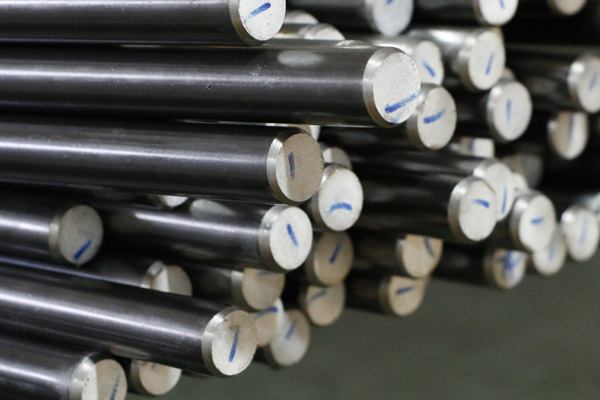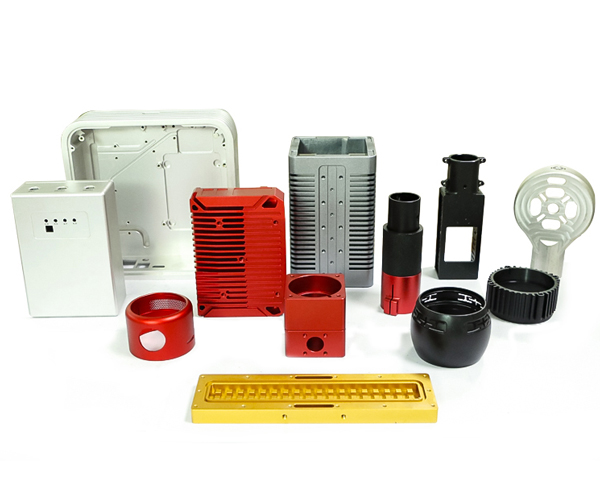15 years one-stop China custom CNC machining parts factory

Hey there I’m VMT Sam!
With 25 years of CNC machining experience we are committed to helping clients overcome 10000 complex part-processing challenges all to contribute to a better life through intelligent manufacturing. Contact us now
 190 |
Published by VMT at May 24 2024
190 |
Published by VMT at May 24 2024
Comparison of Titanium and Aluminum Performance
In the field of CNC machining parts manufacturing, titanium and aluminum are common metal materials. Each has its unique physical and chemical properties suitable for different applications. This article will provide a detailed comparison of the performance of titanium and aluminum to help you make the right choice for your project requirements.

Titanium vs. Aluminum: Elemental Composition
Titanium is a chemical element with an atomic number of 22, located in Group 4 of the periodic table. It is a silver-white transition metal known for its high strength, low density, and excellent corrosion resistance. Aluminum, on the other hand, is a lightweight metal with an atomic number of 13, located in Group 3 of the periodic table. Aluminum exhibits good electrical conductivity, thermal conductivity, and ductility.
Titanium vs. Aluminum: Electrical Conductivity and Thermal Conductivity
In terms of electrical conductivity, aluminum surpasses titanium significantly. Aluminum is an excellent conductor of electricity, second only to copper, making it widely used in industries such as electronics, power transmission, and communication. Similarly, aluminum also excels in thermal conductivity. Its high thermal conductivity makes it an excellent heat-dissipating material, commonly used in the manufacture of radiators and heat exchangers.
Titanium vs. Aluminum: Weight
In terms of weight, titanium has a density of approximately 4.51 g/cm³, while aluminum has a density of approximately 2.7 g/cm³. This means that aluminum products are lighter in weight for the same volume. However, titanium's strength far exceeds that of aluminum, allowing titanium products to be lighter when using materials of the same strength.
Titanium vs. Aluminum: Corrosion Resistance
Both titanium and aluminum exhibit excellent corrosion resistance. Titanium, in particular, excels in corrosion resistance and remains stable in many corrosive environments. This makes titanium widely used in industries such as chemical processing, marine engineering, and medical devices. While aluminum forms a dense oxide film at room temperature, preventing metal corrosion, its corrosion resistance may decrease under high temperatures or in harsh environments such as strong acids or alkalis.
Titanium vs. Aluminum: Their Applications
Applications of Titanium:
Aerospace: Titanium alloys are used to manufacture aircraft engine components, structures, and skins to reduce weight and improve corrosion resistance.
Chemical Processing: Titanium is used to manufacture corrosion-resistant pipes, valves, and vessels.
Marine Engineering: Titanium is utilized in the production of ship propellers and seawater desalination equipment.
Medical Devices: Titanium's biocompatibility and corrosion resistance make it suitable for manufacturing artificial bones, dental implants, and surgical instruments.

Applications of Aluminum:
Construction: Aluminum is used to manufacture doors, windows, curtain walls, and roofs.
Automotive: Aluminum is used to manufacture car bodies, engine components, and chassis to reduce vehicle weight and improve fuel economy.
Electronics: Aluminum is used to manufacture wires, cables, and heat sinks.
Packaging: Aluminum is used to manufacture cans, bottle caps, and foil.

VMT's Manufacturing Capabilities
As experts in the field of CNC machining parts manufacturing, VMT possesses extensive experience in CNC machining of titanium and aluminum. With advanced CNC machining equipment and a skilled technical team, we can provide high-quality CNC machining parts made of titanium and aluminum. We are committed to offering customized solutions and premium CNC machining services to meet the diverse needs of various industries.

Titanium vs. Aluminum: Which Metal Should You Use?
When choosing between titanium and aluminum for your project material, consider the following factors:
Cost: Titanium is typically more expensive than aluminum, so consider your project budget when selecting materials.
Application Areas: Titanium and aluminum have different advantages in various fields. For applications requiring high strength and corrosion resistance, titanium may be the better choice. For applications requiring lightweight and good conductivity, aluminum may be more suitable.
Machinability: Titanium and aluminum have different machining properties. Titanium's higher hardness and melting point make it more difficult to machine compared to aluminum. However, aluminum's lower hardness results in easier machining, but surface quality may be slightly inferior to titanium.
Machining Waste: Both titanium and aluminum produce certain amounts of waste during machining. Evaluate the cost of waste disposal and recycling to make a more economical choice.
Aesthetic Requirements: In some applications, the appearance and texture of products also play a role in material selection. For industries such as medical devices and jewelry, the appearance and texture of titanium and aluminum may differ, requiring consideration of specific requirements.
Frequently Asked Questions about Titanium and Aluminum
Is titanium more corrosion-resistant than aluminum?
Answer: Yes, titanium generally exhibits superior corrosion resistance compared to aluminum. Titanium can remain stable in many corrosive environments, while aluminum may corrode under harsh conditions.
Is aluminum lighter than titanium?
Answer: Yes, aluminum products are lighter in weight for the same volume. However, titanium's strength far exceeds that of aluminum, allowing titanium products to be lighter when using materials of the same strength.
Is titanium more difficult to machine than aluminum?
Answer: Yes, titanium is typically more difficult to machine than aluminum. Due to its higher hardness and melting point, titanium requires higher cutting forces and temperatures for machining. This may result in faster tool wear, slower machining speeds, and higher machining costs. In comparison, aluminum is easier to machine, resulting in lower machining costs.
Conclusion
Titanium and aluminum have unique properties and applications. When choosing between titanium and aluminum for your project material, consider factors such as cost, application areas, machinability, machining waste, and aesthetic requirements. Whether you choose titanium or aluminum for your project material, VMT can ensure the production of high-quality, precision CNC machining parts to meet your needs.
Finally, please note that when selecting materials, consider their sustainability, environmental friendliness, and long-term cost-effectiveness. Choosing materials that meet sustainable development requirements can help reduce environmental impact and enhance business competitiveness.
Ready To Start Your Next Project?
Get Instant Quote

Request a Free Quote
Send us a message if you have any questions or request a quote. We will get back to you ASAP!